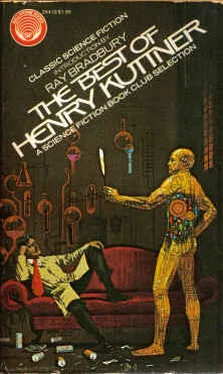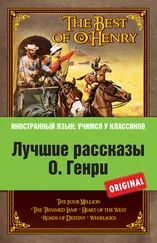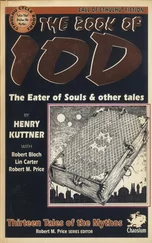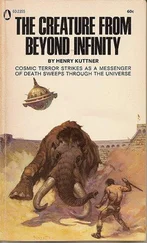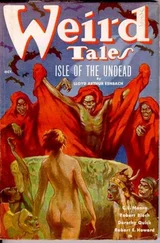The beads did sting, when Scott chose the wrong ones or tried to slide them in the wrong direction. At last he crowed exultantly.
“I did it, Dad!”
“Eh? What? Let’s see.” The device looked exactly the same to Paradine, but Scott pointed and beamed.
“I made it disappear.”
“It’s still there.”
“That blue bead. It’s gone now.”
Paradine didn’t believe that, so he merely snorted. Scott puzzled over the framework again. He experimented. This time there were no shocks, even slight. The abacus had showed him the correct method. Now it was up to him to do it on his own. The bizarre angles of the wires seemed a little less confusing now, somehow.
It was a most instructive toy — It worked, Scott thought, rather like the crystal cube. Reminded of that gadget, he took it from his pocket and relinquished the abacus to Emma, who was struck dumb with joy. She fell to work sliding the beads, this time without protesting against the shocks — which, indeed, were very minor — and, being imitative, she managed to make a bead disappear almost as quickly as had Scott. The blue bead reappeared — but Scott didn’t notice. He had forethoughtfully retired into an angle of the chesterfield and an overstuffed chair and amused himself with the cube.
There were the little people inside the thing, tiny manikins much enlarged by the magnifying properties of the crystal. They moved, all right. They built a house. It caught fire, with realistic-seeming flames, and the little people stood by waiting. Scott puffed urgently. “Put it out!”
But nothing happened. Where was that queer fire engine, with revolving arms, that had appeared before? Here it was. It came sailing into the picture and stopped. Scott urged it on.
This was fun. The little people really did what Scott told them, inside of his head. If he made a mistake, they waited till he’d found the right way. They even posed new problems for him.
The cube, too, was a most instructive toy. It was teaching Scott, with alarming rapidity — and teaching him very entertainingly. But it gave him no really new knowledge as yet. He wasn’t ready. Later… later.
Emma grew tired of the abacus and went in search of Scott. She couldn’t find him, even in his room, but once there the contents of the closet intrigued her. She discovered the box. It contained treasure-trove — a doll, which Scott had already noticed but discarded with a sneer. Squealing, Emma brought the doll downstairs, squatted in the middle of the floor and began to take it apart.
“Darling! What’s that?”
“Mr. Bear!”
Obviously it wasn’t Mr. Bear, who was blind, earless, but comforting in his soft fatness. But all dolls were named Mr. Bear to Emma.
Jane Paradine hesitated. “Did you take that from some other little girl?”
“I didn’t. She’s mine.”
Scott came out from his hiding place, thrusting the cube into his pocket. “Oh — that’s from Uncle Harry.”
“Did Uncle Harry give that to you, Emma?”
“He gave it to me for Emma,” Scott put in hastily, adding another stone to his foundation of deceit.
“Last Sunday.”
“You’ll break it, dear.”
Emma brought the doll to her mother. “She comes apart. See?”
“Oh? It — ugh!” Jane sucked in her breath. Paradine looked up quickly.
“What’s up?”
She brought the doll over to him, hesitated and then went into the dining room, giving Paradine a significant glance. He followed, closing the door. Jane had already placed the doll on the cleared table.
“This isn’t very nice is it, Denny?”
“Hm-m-m.” It was rather unpleasant, at first glance. One might have expected an anatomical dummy in a medical school, but a child’s doll.
The thing came apart in sections — skin, muscles, organs — miniature but quite perfect, as far as Paradine could see. He was interested. “Dunno. Such things haven’t the same connotations to a kid.”
“Look at that liver. Is it a liver?”
“Sure. Say, I — this is funny.”
“What?”
“It isn’t anatomically perfect, after all.” Paradine pulled up a chair. “The digestive tract’s too short.
No large intestine. No appendix, either.”
“Should Emma have a thing like this?”
“I wouldn’t mind having it myself,” Paradine said. “Where on earth did Harry pick it up? No, I don’t see any harm in it. Adults are conditioned to react unpleasantly to innards. Kids don’t. They figure they’re solid inside, like a potato. Emma can get a sound working knowledge of physiology from this doll.”
“But what are those? Nerves?”
“No, these are the nerves. Arteries here; veins here. Funny sort of aorta.” Paradine looked baffled.
“That — what’s Latin for network, anyway, huh? Rita? Rate?”
“Rales,” Jane suggested at random.
“That’s a sort of breathing,” Paradine said crushingly. “I can’t figure out what this luminous network of stuff is. It goes all through the body, like nerves.”
“Blood.”
“Nope. Not circulatory, not neural. Funny! It seems to be hooked up with the lungs.”
They became engrossed, puzzling over the strange doll. It was made with remarkable perfection of detail, and that in itself was strange, in view of the physiological variation from the norm. “What’ll I get that Gould,” Paradine said, and presently was comparing the doll with anatomical charts. He learned little, except to increase his bafflement.
But it was more fun than a jigsaw puzzle.
Meanwhile, in the adjoining room, Emma was sliding the beads to and fro in the abacus. The motions didn’t seem so strange now. Even when the beads vanished. She could almost follow that new direction — almost…
Scott panted, staring into the crystal cube and mentally directing, with many false starts, the building of a structure somewhat more complicated than the one which had been destroyed by fire. He, too, was learning — being conditioned.
Paradine’s mistake, from a completely anthropomorphic standpoint, was that he didn’t get rid of the toys instantly. He did not realize their significance, and, by the time he did, the progression of circumstances had got well under way. Uncle Harry remained out of town, so Paradine couldn’t check with him. Too, the midterm exams were on, which meant arduous mental effort and complete exhaustion at night; and Jane was slightly ill for a week or so. Emma and Scott had free rein with the toys.
“What,” Scott asked his father one evening, “is a wabe, Dad?”
“Wave?”
He hesitated. “I — don’t think so. Isn’t “Wabe’ right?”
““Wabe’ is Scot for “Web.’ That it?”
“I don’t see how,” Scott muttered, and wandered off, scowling, to amuse himself with the abacus. He was able to handle it quite deftly now. But, with the instinct of children for avoiding interruption, he and Emma usually played with the toys in private. Not obviously, of course — but the more intricate experiments were never performed under the eye of an adult.
Scott was learning fast. What he now saw in the crystal cube had little relationship to the original simple problems. But they were fascinatingly technical. Had Scott realized that his education was being guided and supervised — though merely mechanically — he would probably have lost interest. As it was, his initiative was never quashed.
Abacus, cube, doll and other toys the children found in the box.
Neither Paradine nor Jane guessed how much of an effect the contents of the time machine were having on the kids. How could they? Youngsters are instinctive dramatists, for purposes of self-protection. They have not yet fitted themselves to the exigencies — to them partially inexplicable — of a mature world. Moreover, their lives are complicated by human variables. They are told by one person that playing in the mud is permissible, but that, in their excavations, they must not uproot flowers or small trees. Another adult vetoes mud per Se. The Ten Commandments are not carved on stone — they vary; and children are helplessly dependent on the caprice of those who give them birth and feed and clothe them. And tyrannize. The young animal does not resent that benevolent tyranny, for it is an essential part of nature. He is, however, an individualist, and maintains his integrity by a subtle, passive fight.
Читать дальше
